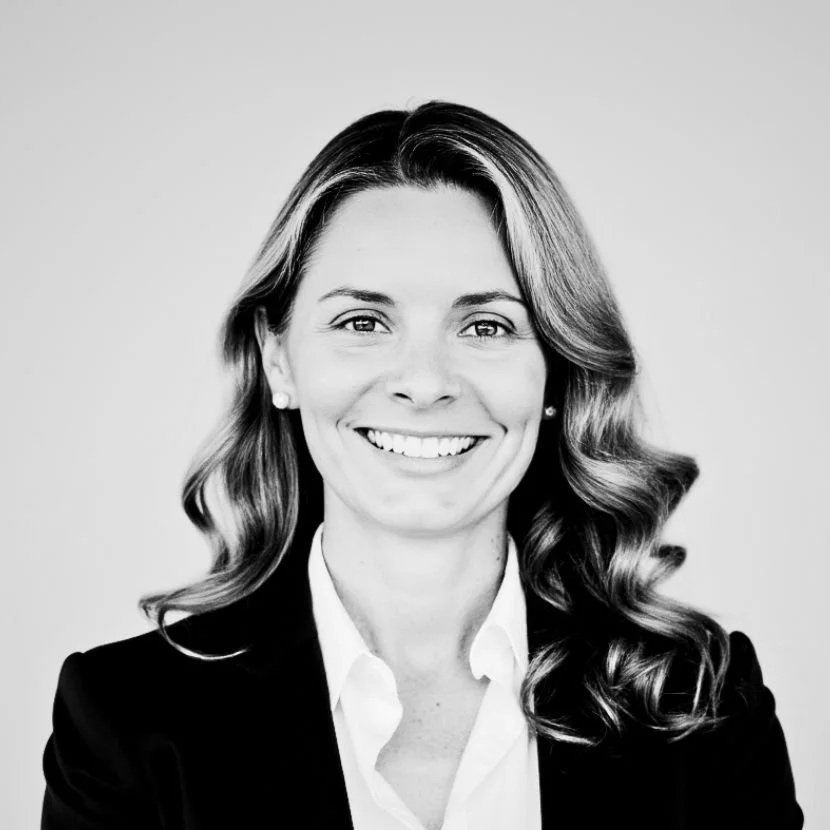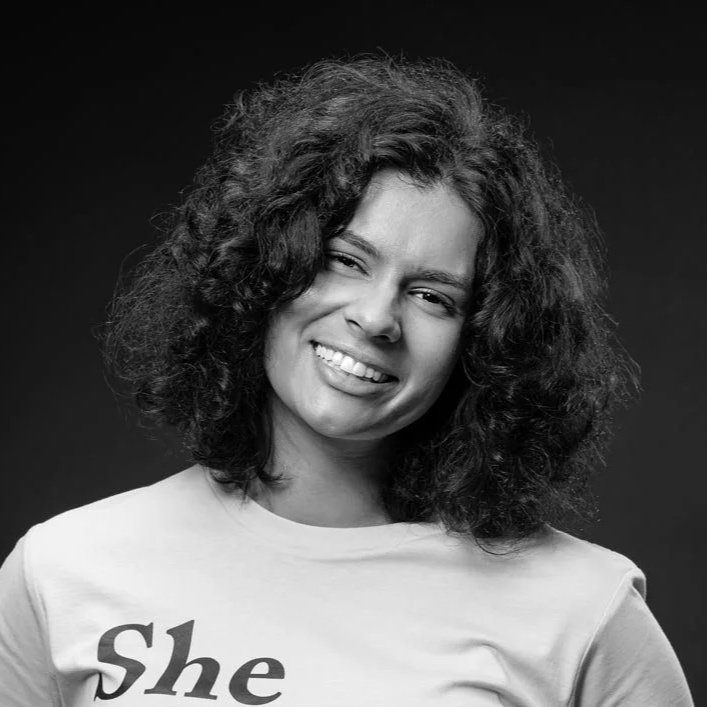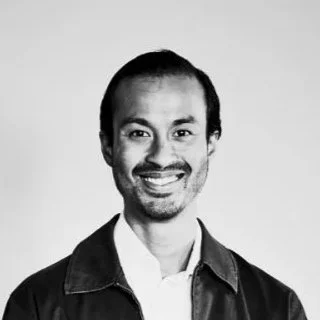Catherine Griffin On Scaling Impact Through Primary Data Driven Analytics
As founder and CEO of ImpactableX Analytics, Catherine helps social entrepreneurs and their investors to leverage data that can drive impact at scale. Her cutting-edge approach to impact modeling democratises impact data and analytics by delivering a seamless and dynamic UX and generating analytics that uniquely engage investors, driving capital to the innovations with the greatest potential for meaningful impact.
Prior to launching ImpactableX, Catherine served as Managing Director at an award-winning impact accelerator, GoodCompany Ventures and in 2014 led the execution of FastFWD. Leveraging the success of this work, Catherine built a partnership with the Obama Administration's Climate Data Initiative in 2017 called Climate Ventures 2.0. Focused on addressing threats to food and water systems from changes in climate, she focused the data, tech resources and expertise of organizations to accelerate and launch 10 tech companies with funding and pilot opportunities directly with cities around the US. Her work has been featured in Forbes and the New York Times, among others. Catherine has a BA from the University of Pennsylvania and is an Adjunct Professor at Temple University.
Catherine Discusses The Critical role data analytics play in Reducing communication barriers between social enterprises, potential investors and customers.
Highlights from the interview (listen to the podcast for full details)
[Anika Horn] - Catherine Griffin, who is [based] in Philadelphia, thank you so much for taking the time to talk to us today.
[Catherine Griffin] - Thank you for having me, it's such a pleasure to be here.
Wonderful. Why don't we start off with telling me a little bit more about what it is that you do to support purpose-driven entrepreneurs and organisations?
Sure, what we do is work with social entrepreneurs directly to help them really get clear on the impact mechanics and operations of their business. I think it is important to share a little bit of history, because the methodology that we designed and the approach that we take to doing this is really hard and was developed over years of working directly with business founders.
We managed an accelerator called GoodCompany Ventures in Philadelphia for several years. It was founded in 2009, I joined in 2013 and we worked with hundreds of early-stage social entrepreneurs [who were] initially sector agnostic, but they mounted massive national and increasingly global innovation consortiums over time.
One won a Bloomberg Mayor's Challenge Award, and we received a one-million-dollar prize from Bloomberg Philanthropies to bring early-stage innovation and technology to bear on really tough public safety challenges in Philadelphia. We ran two cohorts of ten entrepreneurs, and many of them are now backed by Andreessen Horowitz and Kapore, and some of the really incredible VCs out there both in the impact space and in mainstream venture technology.
After that I worked with the Obama Administration around a climate adaptation innovation, arranging 80+ different industry partners and capital coaches to really channel the resources of the climate data initiative.
This initiative out of the Obama Administration channeled these resources to really high-level entrepreneurs. It was over the course of this time that we really saw the consequences of not having impact data. I mean, entrepreneurs have this belief system and convictions that their impact is good for the world. Of course, this is good, everybody knows this is good! For example, we need to reduce recidivism, but the degree to which we do that, confirmation of it happening and any comparison as to which approaches are more effective is missing. Entrepreneurs we found were really building and managing their companies blind to the impact consequences of it, and investors really had no way to understand where they could place their capital for the greatest impact leverage.
We developed a methodology that meets early-stage founders 'where they are', meaning they have very little time, primary data and resources, but massive potential and possibility.
Really, they need to engage investors and other stakeholders around that possibility and potential, and so what we do now is help founders apply this methodology to their own business, and I'm happy to talk more about how we do that. But, once they have that data, they're incorporating it into their messaging, building their businesses to optimise revenue and/or impact, and engaging with investors.
Increasingly, I'm talking to investors now who also want to be collecting these analytics among their portfolio companies and evaluating the data points that come in at a higher aggregate level, which is another whole conversation that is really fascinating.
I think the space is just really thirsty for this guidance and these data points, and so that's really the space that we're trying to fill.
This is so fascinating. I think we all want data, and the same time it is such an intimidating topic. For example, recidivism is such a fantastic example of showcasing not only if people go back to jail or not, but what is it costing the state if they do and what are we saving if they don't? [I also don't] want to oversimplify it and break it down to just money, but impact can be such a beautifully complex topic. I'm just super fascinated by the work you're doing!
I'm so glad you said that, because interpreting impact through a financial lens can be controversial, but it's absolutely a component of what we do. I want to share with you how we do what we do, but that financial piece allows us to have so many interesting new perspectives.
For example, the cost of one inmate returning to prison within a year in San Francisco is going to look very different from that same event happening in Southeast Asia, Africa or Italy. It's just going to look different.
That allows us to account for those geographic differences if we're talking about education or health consequences, and suddenly demographics come in play. We think [we should] absolutely generate KPIs and impact outputs of the direct consequences, how many inmates over a given period of time won't return to prison based off of what the research says about an innovation. We absolutely generate those analytics.
But, by then capturing the economic implications of that impact, we can differentiate between a company that serves two people on a very deep level, versus another company that serves a thousand people at a shallow level, versus a third company that serves a thousand people at a deep level.
I think that's really important, we don't necessarily endorse anything, anyone, any innovation, business model or company. But we think that transparency is absolutely critical. Putting all of these pieces clearly out on the table and allowing investors and entrepreneurs to have a conversation about them, the assumptions that go into them, and the research that informed them is absolutely critical in order for the impact space to evolve. The last thing I would say about the economic quantification piece is that it allows us to translate impact into economic terms, which then allows us to evaluate it within the lens of the economy. I firmly believe that as long as impact is not evaluated that way, it's going to be nice to have, it's not going to be relegated to the sidelines of the economy, because the truth is that impact absolutely has economic consequences, we just through externalities don't consider them.
We generate analytics that look at capital impact leverage and revenue to impact that allows investors to see their stake and ownership over impact creation that really integrates impact analytics into financial management practices. I think this is absolutely critical.
You are helping to bridge the gaps to help us all speak the same language, or at least trying to help an economist understand what a social entrepreneur is creating. Because really, we are talking about different languages, especially when it comes to the feel-good social impact versus hard financial or micro economic trends. Whatever it is, I think that's so powerful.
What an amazing point you just made; I love that. Investors aren't policy makers, and entrepreneurs, their belief system, passion and aspiration for impact needs to be articulated effectively, right? We all come from these different perspectives with different skillsets and mandates.
[Also], so much of the impact space such as for-profit entrepreneurship addressing social and environmental challenges spans different sectors, [such as] philanthropy, venture capital, entrepreneurship, policy, international development and NGO work. I mean, there are so many different languages involved here.
It is critical that we're all looking at the same information and agreeing to those same basic terms. The big picture work is absolutely what we're doing and we're really trying to make it easy, malleable and dynamic.
One of the benefits that I hear entrepreneurs really raving about with our approach is that none of the data points that we generate are written in stone, but we do certify and verify impacts at a given time. More importantly though, what we do is we generate a model.
We build a model for a company so that they understand exactly what the inputs are to generating their analytics. If they change their five-year sales projections or collect more primary data that says they're actually able to affect 20% of inmates from returning to prison, instead of the 7% that they initially projected, you can make changes to each of these inputs within a stable formula. It's dynamic, and we really feel it's important to meet entrepreneurs where they know full well at the early stages, they're going to be wrong.
Nobody's going to hold a founder to their five-year financial projections, and we think the same is true on the social side. But again, really providing that framework and transparency [is important], so as we get smarter, we can make changes and have a conversation about exactly what assumptions, expectations and data points are feeding into it.
That's fantastic, especially because social entrepreneurs by definition define success differently than entrepreneurs who don't necessarily have a social mission. I feel like you're giving them a language and a representation of what success looks like, which I think is something that the sector has missed. Like you said in the beginning, we assume, and we think we can see the impact, but being able to put actual data behind it, tracking it and maybe even using it as a guard rail as you move forward is so incredibly powerful.
That's exactly it, and on the investor side they're getting so many different pitches that it can be bewildering. I mean, I have this responsibility to manage the investments of my LPs and everybody tells me these amazing stories about how they're going to change the world. So, how do I know which ones to believe?
Having that common language and a way for the entrepreneur to really convey in hard numbers and hard dollars exactly how they think they can create impact in the world and provide data points that meet investors where they are [is critical].
It is to say for every dollar of capital you invest, I can multiply it by X in impact creation in this category and Y in impact creation in this category and really have the data to help an investor do their job effectively. I think right now there are a lot of missing pieces and we try to bring them all together.
More power to you, I think we need more ‘Catherines’ in every social enterprise around the world to help do that work and translate that language. Clearly, it's a huge topic that I feel like we could talk about for hours, and hopefully we will at some point. What I wanted to talk about are either approaches or metrics that you would recommend for any social entrepreneurs to start tracking as early as they can if they're not ready yet to do the full thing, but they want to be mindful of their impact. Do you have a go-to piece of advice for them?
The first place to start is really to get clear on what your metrics are, and sometimes this is straightforward and sometimes it's not. But that is absolutely the first step here. Are we talking about tons of carbon abated from the atmosphere [which is a very straightforward one], reducing three-year reincarceration rates, or are you thinking about individuals from certain populations that are able to graduate from university who wouldn't have otherwise?
It's really getting clear on what happens in the world now that wouldn't happen before, and there are some resources to help you do that. Iris+ has just released a core metric set so folks can go there and scroll through it. It is all encompassing and very granular.
You can reach out to your board or other partners in your network and hash it out that way. You can even reach out to me, I'm always happy to help. But really, it's putting all of your expectations down about the measurable expressions of your impact. I hear so many founders say, "I want to build community or a sense of belonging", or maybe they want to improve education. But what does that actually mean? What happens now? That's the first step, and then from there, the very next step that we work with entrepreneurs to do is to think through impact at a unit level.
They're figuring out what that unit is, whether it's a person, user, product sold, a farm, school or prison. They're asking, "what is our unit of growth?" Think through your impact on that unit level, that's a really great way to start small and break it down into a more manageable chunk.
Then once you have that unit level impact understanding, you're able to then extrapolate backwards or forwards based off of the number of units that you sold, or you expect to sell. That's where I would start.
The other general piece of advice I would say is if you haven't already, take a look at the SDGs. Lots of investors are also starting there and thinking through which SDGs they want to be trying to promote through their investments.
Starting to figure out how your innovation plugs into the goals, targets and indicators is also a good first step.
Where can entrepreneurs, investors and anyone who is interested in learning more about the company you work for or the work you're doing [find information]?
Just go to socialimpactprojection.org. You can also find me on LinkedIn, Instagram or on Twitter. I would love to connect and share more, as our goal here is really to share this approach that we've built with as many people as far and wide [as possible], regardless of the means or the stage of their development.
Whether they decide to work with us or do it on their own, we just really believe in the value of this work to the growth, maturity, credibility and recognition of the impact space. It's just so important.
So many people feel like it's hard and overwhelming, and so we're here to break it down a little bit and hope everyone reaches out.
Thank you so much for sharing your insights. This has been really wonderful, thank you for your time.
Initiatives, resources and people mentioned on the podcast
Find Catherine Griffin’s feature on Social Venturers







